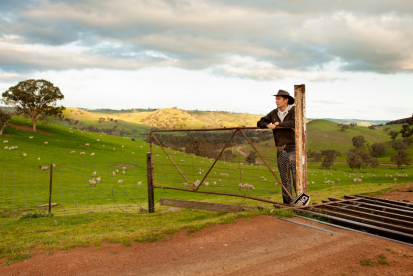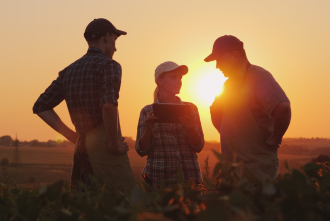We've all seen at least one episode of Border Security where a traveller is caught red-handed with undeclared items or an episode where we countlessly murmured to ourselves, "what is that?" or "how did you think you can get that through custom?" We love it even more when they make a scene to keep the items; the show wouldn't be going to its 16th season if we didn't.
Aside from the entertainment factor, it's educational and eye-opening to see what can and cannot be brought into the country to prevent invasive pests and diseases from entering the country. Especially now, with the outbreak of the foot-and-mouth disease in Bali knocking at our doorstep, custom control and biosecurity measures are only going to be heightened.
If you are concerned, Paul Burke, CEO of NT Farmers, is here to shine a light on the current biosecurity threats. Throughout the blog, Paul shares valuable strategies to actively manage the risks and how to factor them into your financial planning and budgeting habits to lower your financial risks.
Geographically Australia is at a natural advantage
Our native plants, wildlife, ecosystem and major industries are naturally protected due to geographical isolation from the rest of the world. We are one of the few countries to remain free from the world's most invasive pests and diseases. However, trade volumes and travel growth over the years have caused a 50% increase in biosecurity incursions compared to 2017 to just over 37,000 cases. (Link CSIRO report here)
Now that the Australian borders have reopened and travels are back to normal, only putting restrictions in place is not enough to prevent undeclared items from entering the country. Yes, we've all seen or heard of cases where travellers are fined hundreds of dollars, if not thousands, for not following the protocols. However, if foreign travellers are not aware of the information or are not educated enough on the topic, this mistake can cause millions of dollars to the Australian economy.
According to Paul, there's no excuse for returning Australian residents not to be informed. However, more education and clear communication in multiple languages is still needed to ensure people are 100% complying with the regulations.
"Don't just put a restriction in. Tell everyone why and make sure that's in a language that people can understand. We are kidding ourselves if we think these messages will get through; it needs to be on a case-by-case basis."
Biosecurity is not an isolated effort but rather a shared responsibility
It's a multi-layered shared effort across governments, industries and the general population. One outbreak can have a ripple effect on every area of the country; from community welfare to the environment, our livestock, and to the economy, it's a monumental impact that can take years to eradicate.
"If the foot-and-mouth disease comes into Australia, all our international market could collapse on the day we get detention."
From the government's perspective
Strong enforcement offshore, at the border and onshore with well-resourced security agencies are needed to mitigate the risks of potential threats from entering. They also have a role in educating and spreading the message to the general public and the industry. If the worst scenario is to occur, a response plan must also be established. Swift and quick actions must be taken at the point of entry and well-resourced and rehearsed.
"A lot of our past mistakes were around poor communication. Everyone thought it was someone else's job to do the informing, which caused a lot of division and untold stress for commercial growers through the process."
From the grower's perspective
Not only will the outbreak create a financial toll, but it can also lead to significant emotional burdens.
"If you think about FMD or lumpy skin, if an outbreak is to happen, it will be an emotional toll for the growers to have to destroy their animals, and the impact on their livelihood would be massive."
Paul reiterated that even as an individual grower, a swift response is necessary and to make the investment early so you can isolate it as much as possible at the point of incursion. Not only does practice makes perfect, but we can also learn from past incursions.
"We've now got another biosecurity outbreak with banana freckles again in the NT, and we've taken the learnings from the past incursions where the system really failed."

CEO NT Farmers
The effect on your bottom line
According to Paul, he's noticing a trend where a significant number of farmers are accounting for biosecurity risks in their bottom line and annual budget. It's crucial to factor in the potential interruptions that the current threats can have on farm business performance.
"Biosecurity is not something you just set and forget. You need to keep visiting it."
Scenario planning is one of the best ways to prepare for the unexpected. If you aren't sure where to start, researching past incursions and their effect on the growers will be the first promising step. To run the scenario, Paul suggests asking the following questions:
- What will be the effect on the domestic and export markets?
- How will that affect your sales figures?
- Examine your profit and loss statements and work out a rough estimate of input costs. For example, you are increasing the use of chemicals to combat the outbreak, etc. That rough figure is the answer to how much it would cost you to increase biosecurity measures around your farm.
- Are there alternative markets to which you can sell your produce?
- What would that cost, and how will the new market impact your revenue?
A well-organised, well-documented business that has a strongly prepared plan with timely financial reporting is far more likely to survive a major incursion than one without.




